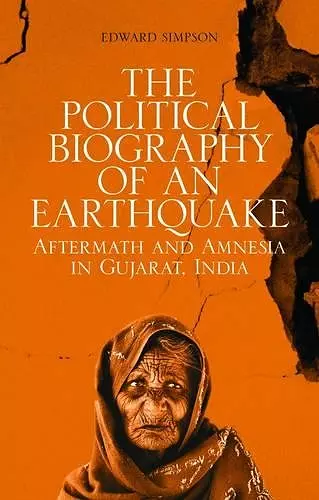The Political Biography of an Earthquake
Aftermath and Amnesia in Gujarat, India
Format:Paperback
Publisher:C Hurst & Co Publishers Ltd
Published:7th Feb '14
Currently unavailable, and unfortunately no date known when it will be back

For those so-minded, the aftermath of an earthquake presents opportunities to intervene. Thus, in Gujarat, following the disaster of 2001, leaders were deposed, proletariats created, religious fundamentalism incubated, the state restructured, and industrial capital- ism expanded exponentially. Rather than gazing in at those struggling in the ruins, as is commonplace in the literature, this book looks out from the affected region at those who came to intervene. Based on extensive research amid the dust and noise of re- construction, the author focuses on the survivors and their interactions with death, history, and with those who came to use the shock of disaster to change the order of things. Edward Simpson takes us deep into the experience of surviving a 'natural' disaster. We see a society in mourning, further alienated by manufactured conditions of uncertainty and absurdity. We witness arguments about the past. What was important? What should be preserved? Was modernisation the cause of the disaster or the antidote? As people were putting things back together, they also knew that future earthquakes were inevitable. How did they learn to live with this terrible truth? How have people in other times and places come to terms with the promise of another earthquake, knowing that things will fall apart again?
'In his Political Biography of an Earthquake - Edward Simpson tries to pull back from the immediate, ephemeral spotlight so typical of journalists, politicians and international humanitarian agencies. - Without reverting to excessive theory, Simpson explores the history of the most affected district of Kutch and investigates the consequences of the relief efforts of 2001. In these efforts, he sees - for good or evil - an underlying neoliberal capitalist agenda, with industrialisation, immigration and environmental degradation accelerated if not caused by the reconstruction efforts. Simpson provocatively suggests the need for an alternative view of "humanitarians" as trespassers, "their actions no longer - so routinely sensible or so morally untouchable". - his many years of research in the region provide important material for reflection beyond the usual focus on local government failure and the need to accelerate foreign help after disasters.' * Financial Times *
'Edward Simpson's book places the earthquake and its aftermath firmly within the political context of Gujarat. It is not simply an account of the social consequences of a natural disaster but a compelling political ethnography of Gujarat, through the lens of the earthquake. Offering a multilayered political analysis the book however never gives up deep humane concern for individual struggles and experiences.' * Martin Sokefeld, Chair of Social and Cultural Anthropology, Ludwig Maximilian University of Munich *
'The Political Biography of an Earthquake is a magnificent account of the spaces for memory work and political contestation that are opened up in the wake of an apparently "natural" traumatic event. Simpson's prose is taut and often beautiful, his major observations profound and sometimes haunting. All in all, this is a great achievement and a major work of anthropology.' * Stuart Corbridge, Provost of the London School of Economics *
'The idea of looking at a natural disaster through its political biography redefines our understanding of both politics and nature. Carefully researched, cogently argued, this book will not only deepen how we read the politics of Gujarat but also how we conceptualise the relation between governance, politics and natural disasters.' * Veena Das, Krieger-Eisenhower Professor of Anthropology, Johns Hopkins University *
'Simpson's book not only does justice to Gujarat after the calamity but provides a comprehensive idea of how a narrative of a disaster can be presented in a non-sensational and non-academic manner' * Dawn *
ISBN: 9781849042871
Dimensions: unknown
Weight: unknown
288 pages